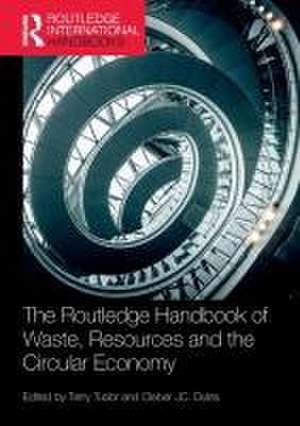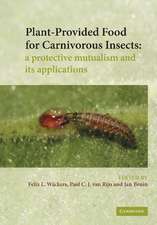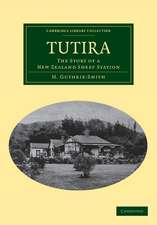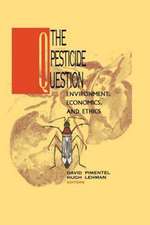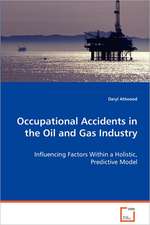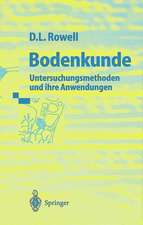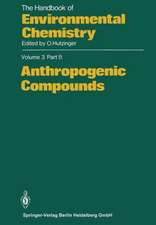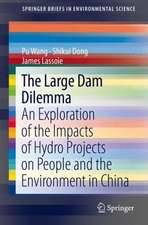The Routledge Handbook of Waste, Resources and the Circular Economy: Routledge International Handbooks
Editat de Terry Tudor, Cleber JC. Dutraen Limba Engleză Paperback – 29 ian 2024
A fundamental underpinning of the Handbook is that it takes account of a wide range of sectors, as well as geographical perspectives that incorporate both a Global North and Global South world context. This approach is crucial because it is only within such a holistic perspective that the circular economy concept can truly be examined. In addition, these issues are examined both from a theoretical as well as a practical perspective, using real-world case studies for illustration.
Given its wide subject, sectoral, and geographical areas of focus, the Handbook should be of value not only for those undertaking research in the field of circular economy, but also stakeholders involved in policymaking, as well as decision-making on the front line.
| Toate formatele și edițiile | Preț | Express |
|---|---|---|
| Paperback (1) | 316.16 lei 6-8 săpt. | |
| Taylor & Francis – 29 ian 2024 | 316.16 lei 6-8 săpt. | |
| Hardback (1) | 1563.17 lei 6-8 săpt. | |
| Taylor & Francis – 28 dec 2020 | 1563.17 lei 6-8 săpt. |
Din seria Routledge International Handbooks
-
 Preț: 371.78 lei
Preț: 371.78 lei -
 Preț: 375.50 lei
Preț: 375.50 lei -
 Preț: 362.20 lei
Preț: 362.20 lei -
 Preț: 352.09 lei
Preț: 352.09 lei - 9%
 Preț: 1487.73 lei
Preț: 1487.73 lei - 5%
 Preț: 317.32 lei
Preț: 317.32 lei -
 Preț: 372.05 lei
Preț: 372.05 lei -
 Preț: 361.20 lei
Preț: 361.20 lei -
 Preț: 390.14 lei
Preț: 390.14 lei -
 Preț: 311.91 lei
Preț: 311.91 lei - 9%
 Preț: 1488.70 lei
Preț: 1488.70 lei -
 Preț: 390.23 lei
Preț: 390.23 lei -
 Preț: 347.75 lei
Preț: 347.75 lei -
 Preț: 347.75 lei
Preț: 347.75 lei - 9%
 Preț: 1490.13 lei
Preț: 1490.13 lei -
 Preț: 356.23 lei
Preț: 356.23 lei -
 Preț: 348.29 lei
Preț: 348.29 lei - 5%
 Preț: 328.13 lei
Preț: 328.13 lei -
 Preț: 394.25 lei
Preț: 394.25 lei - 8%
 Preț: 392.90 lei
Preț: 392.90 lei - 8%
 Preț: 422.42 lei
Preț: 422.42 lei -
 Preț: 357.23 lei
Preț: 357.23 lei - 8%
 Preț: 421.97 lei
Preț: 421.97 lei - 5%
 Preț: 452.17 lei
Preț: 452.17 lei - 9%
 Preț: 1665.72 lei
Preț: 1665.72 lei - 9%
 Preț: 1651.64 lei
Preț: 1651.64 lei -
 Preț: 350.21 lei
Preț: 350.21 lei -
 Preț: 381.91 lei
Preț: 381.91 lei -
 Preț: 345.64 lei
Preț: 345.64 lei -
 Preț: 347.75 lei
Preț: 347.75 lei - 20%
 Preț: 1401.04 lei
Preț: 1401.04 lei -
 Preț: 342.77 lei
Preț: 342.77 lei -
 Preț: 346.78 lei
Preț: 346.78 lei -
 Preț: 345.17 lei
Preț: 345.17 lei -
 Preț: 353.89 lei
Preț: 353.89 lei -
 Preț: 1058.63 lei
Preț: 1058.63 lei -
 Preț: 348.06 lei
Preț: 348.06 lei - 5%
 Preț: 337.34 lei
Preț: 337.34 lei -
 Preț: 365.90 lei
Preț: 365.90 lei - 9%
 Preț: 1528.89 lei
Preț: 1528.89 lei -
 Preț: 346.12 lei
Preț: 346.12 lei -
 Preț: 392.49 lei
Preț: 392.49 lei - 9%
 Preț: 1454.53 lei
Preț: 1454.53 lei - 9%
 Preț: 1492.85 lei
Preț: 1492.85 lei - 5%
 Preț: 326.87 lei
Preț: 326.87 lei -
 Preț: 361.75 lei
Preț: 361.75 lei - 9%
 Preț: 1349.84 lei
Preț: 1349.84 lei - 19%
 Preț: 422.81 lei
Preț: 422.81 lei - 8%
 Preț: 385.56 lei
Preț: 385.56 lei
Preț: 316.16 lei
Preț vechi: 354.25 lei
-11% Nou
Puncte Express: 474
Preț estimativ în valută:
60.49€ • 63.17$ • 49.96£
60.49€ • 63.17$ • 49.96£
Carte tipărită la comandă
Livrare economică 15-29 aprilie
Preluare comenzi: 021 569.72.76
Specificații
ISBN-13: 9780367637590
ISBN-10: 0367637596
Pagini: 468
Ilustrații: 72
Dimensiuni: 174 x 246 mm
Greutate: 0.94 kg
Ediția:1
Editura: Taylor & Francis
Colecția Routledge
Seria Routledge International Handbooks
Locul publicării:Oxford, United Kingdom
ISBN-10: 0367637596
Pagini: 468
Ilustrații: 72
Dimensiuni: 174 x 246 mm
Greutate: 0.94 kg
Ediția:1
Editura: Taylor & Francis
Colecția Routledge
Seria Routledge International Handbooks
Locul publicării:Oxford, United Kingdom
Public țintă
Postgraduate, Professional, and UndergraduateCuprins
1. Introduction: examining the concept of the circular economy Part 1: The need for and challenges surrounding circularity 2. Natural resources. Consumption, pollution, and health risks: developed versus developing economies 3. Consumption and materialism: from acquisitive to responsible materialism 4. Embedding more circular approaches to the management of resources 5. Environmental justice, waste management, and the circular economy: global perspectives 6. Resource consumption and the associated health risks: a brief overview 7. The Sustainable Development Goals as drivers for change 8. Triggers for industrial symbiosis: lessons learnt from twenty-five case studies 9. Bought today, gone tomorrow? From linear to circular consumption Part 2: Measuring and implementing circularity 10. Africa – juxtaposition between rapid urbanisation, industrialisation, and the need to preserve traditional circular systems 11. Circular start-ups: five business model archetypes as frontrunners of circular disruption 12. Ecodesign and circular design of products: concepts, assessment, and strategies 13. Approaches to monitoring and evaluation of resource recovery from waste towards a circular economy 14. Complexity and the circular economy: systems approaches for change 15. Circular economy meso-level planning: an approach with ‘distributed economies’ Part 3: Policy and legislative considerations 16. The role of policy in creating a more circular economy 17. Legal considerations for a circular economy 18. Economic and trade considerations of circular economy approaches 19. Managing waste at the national and local levels Part 4: Sharing economies and capacity building 20. Making sustainable markets and the forming of a circular economy 21. Becoming eco-literate through experiential encounters with food 22. Implementing low carbon strategies – analysis of barriers 23. Overcoming financial, social, and environmental challenges faced by cooperatives: case studies from the State of Rio Grande do Sul, Brazil 24. The informal recycling sector – environmental criminals or the future of the circular economy? 25. Refugee camps and circular economy in Palestinian West Bank: challenges and opportunities Part 5: Recycling 26. Exploring household dynamics for recycling in the UK: a case study of recycling habits in Greater London 27. Circular start-ups: five business model archetypes as frontrunners of circular disruption 28. Enablers and barriers for industrial symbiosis: lessons learnt from twenty-five case studies 29. A proposed approach for a solid waste collection system in an African rural town: a case study from Kenya 30. Circular economy opportunities in Africa – emerging sectors and missing narratives Part 6: Reuse 31. Modular Smartphones and Circular Design Strategies: The Shape of Things to Come? 32. The Use of By-Products in New Materials 33. Using circular supply chains to create community biogas 34. Circular economy initiatives in India: a case study approach Part 7: Use of technologies 35. Product-service system business models and circular economy 36. Circular business models in selected geographical contexts: an analysis of two cases 37. Implementing low carbon strategies in SMEs: auditing strategies 38. Circular economy principles in Africa: the case of the off-grid solar in Kenya 39. Circular supply chain: emerging opportunities and challenges 40. Conclusion: closing thoughts
Notă biografică
Terry Tudor has worked in the fields of sustainable waste management and circular economy since 2003. This work has been undertaken both in the United Kingdom as well as abroad (e.g., in Italy, Brazil, Barbados, and India). He works as a consultant. Previously, he was an Associate Professor at the University of Northampton, UK.
Cleber JC. Dutra is an associate professor and research fellow in sustainability management at the Federal University of Rio Grande do Sul (Brazil) and the Technische Universität Berlin (Germany). He has been examining approaches to sustainability through multiparadigmatic perspectives as a mechanism to overcome its understanding shortcomings. His main areas of interest include innovation, sustainability, circular economy, multiorganisational programmes, resource efficiency, pro-environmental/sustainable behaviour, and CSR.
Cleber JC. Dutra is an associate professor and research fellow in sustainability management at the Federal University of Rio Grande do Sul (Brazil) and the Technische Universität Berlin (Germany). He has been examining approaches to sustainability through multiparadigmatic perspectives as a mechanism to overcome its understanding shortcomings. His main areas of interest include innovation, sustainability, circular economy, multiorganisational programmes, resource efficiency, pro-environmental/sustainable behaviour, and CSR.
Descriere
The Handbook introduces, contextualises, critiques, and discusses a range of perspectives associated with the concept of the circular economy, including economics, environmental policymaking, sociology, environmental science, environmental and industrial engineering, management, international development, and human geography.
